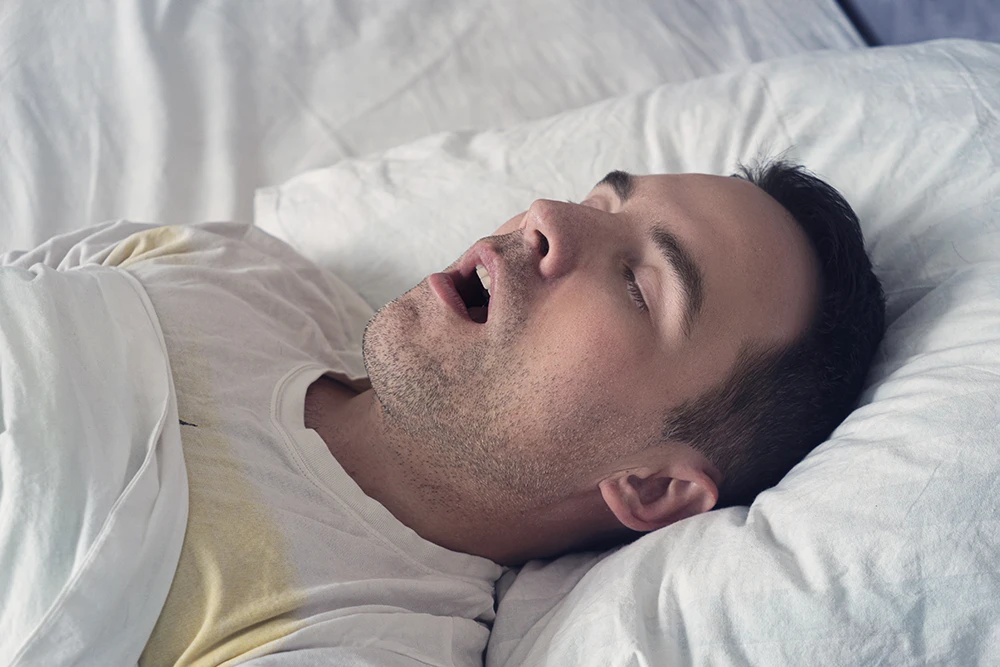Sleep Apnea: The More You Sleep, the More Tired You Are, Cardiovascular Hidden Risks, 5 Major Symptoms and Treatment Methods at a Glance

Even though you sleep early, you still feel fatigued, mentally exhausted, and even experience mood swings, lack of concentration, and morning headaches the next day. However, your partner says you snore loudly every night—what could be the problem? When you experience the above symptoms, you may want to pay attention to signs of "sleep apnea." Here are five simple indicators to help identify it.
How to Tell If You Have Sleep Apnea? Here are Five Simple Indicators:
- 1. Chronic Fatigue
- 2. Daytime Sleepiness
- 3. Shallow Sleep and Frequent Dreams
- 4. Severe Snoring
- 5. Frequent Nighttime Urination
Snoring, which seems like deep sleep, is actually a sign of poor sleep quality! Snoring itself doesn't have severe health effects, but loud snoring can indicate significant airway obstruction, leading to difficulty breathing during sleep and hypoxia. This could eventually cause oxygen levels to drop, triggering the brain to wake you up to breathe, which is why many people who snore heavily suddenly gasp for air during sleep, similar to choking.
This results in the brain staying alert, causing fragmented sleep. The body remains in a hypoxic state, leading to increased fatigue the longer you sleep. Long-term repeated hypoxia can negatively affect the brain and cardiovascular system, potentially causing heart attacks, strokes, and other health issues.
Sleep apnea is more common in men, middle-aged individuals, those who are overweight, drink alcohol, have cardiovascular issues, or have a smaller jaw, and about 25% of adults experience some form of sleep apnea disorder.
To diagnose sleep apnea, you can either spend the night at a professional sleep lab or use a wearable blood oxygen monitor at home. This device can track your blood oxygen levels, oxygen saturation index, blood flow perfusion index, and sleep heart rate variability, helping you analyze your sleep quality and condition.
When Diagnosed with Sleep Apnea, You Can Use These 6 Methods to Help Treat It:
1. Weight Loss: Obesity can lead to excess fat around the neck, which constricts the airways. Therefore, adjusting diet and exercise is the most effective non-invasive treatment for those with obesity or overweight.
2. Avoid Alcohol and Sedative Sleeping Pills Before Bed: Alcohol and sedative sleeping pills can worsen drowsiness and increase the risk of accidents.
3. Sleep on Your Side: For some patients, sleeping on their back increases the likelihood of sleep apnea, but sleeping on their side can reduce the occurrence.
4. Use Decongestant Medications: For those with nasal congestion, decongestant medications can help alleviate the severity of sleep apnea and improve comfort and effectiveness when using a continuous positive airway pressure (CPAP) machine.
5. Use a CPAP Machine While Sleeping: This machine helps keep the airways open during sleep by providing continuous air pressure through a mask. After learning how to use it, it can be used at home and is the standard treatment for adult sleep apnea.
6. Surgery: In severe cases, surgery can be performed to remove the tonsils, reduce nasal swelling, or shrink the soft palate to improve snoring and alleviate sleep apnea.
Sleep apnea can lead to cardiovascular diseases. Early intervention in controlling risk factors can help improve quality of life and reduce long-term mortality risk. If you or your loved ones experience the above symptoms, it's recommended to consult a professional doctor for an accurate diagnosis and treatment.